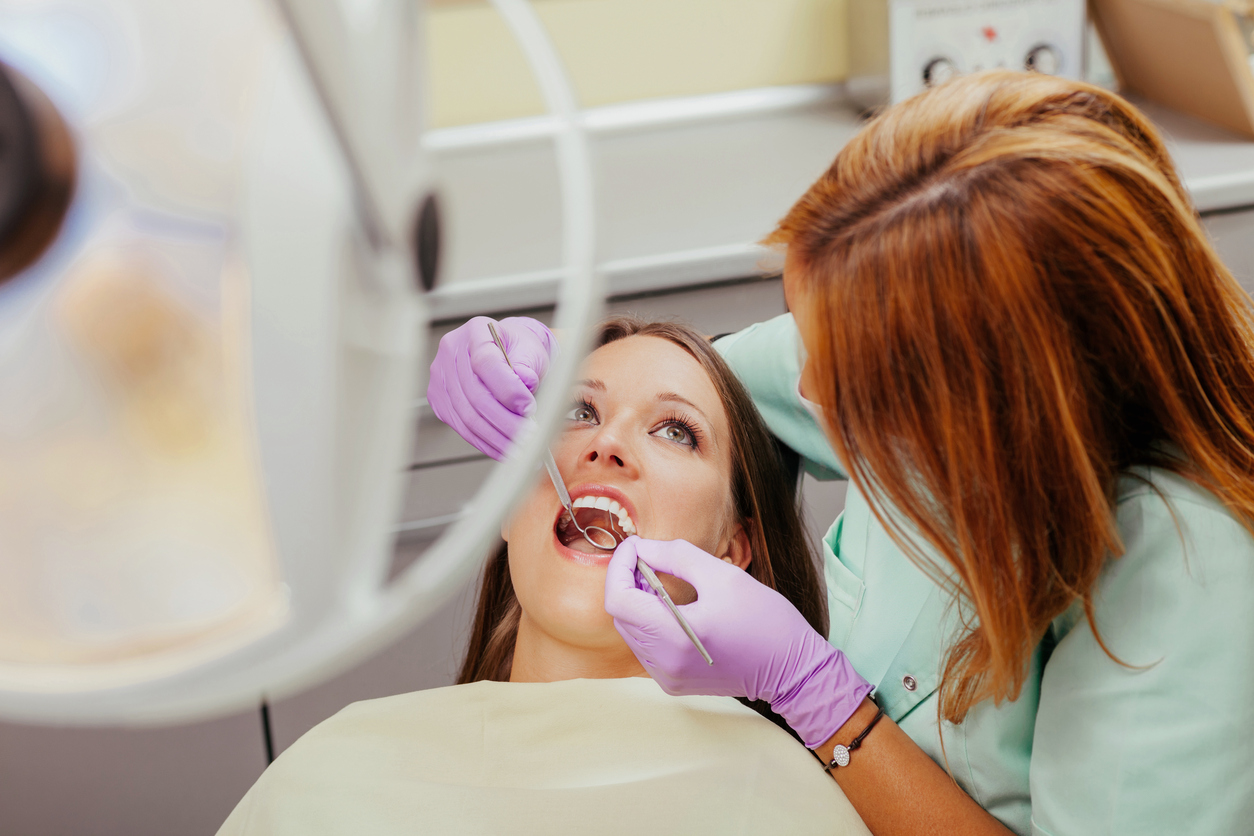We are all busy. But did you know that your dental health may be key to your overall health? At HR Family Dental in Highlands Ranch, Colorado, we’ve put together our top 5 signs you may need to visit your dentist. One thing that is different about HR Family Dental is that on Monday’s and Thursday’s we are in the office until 7 pm! But hurry, because these appointments go fast! Call us today at (303) 346.4495.
5 Signs You May Need To Visit Your Dentist
1. Bleeding Gums. The fact is that healthy gums do not bleed. Do your eyes bleed when you rub them or your skin bleed you scratch it? Kind of gross imagery…but you get the point. Bleeding gums are a sign of inflammation, which can lead to significant periodontal problems if left untreated (such as gum recession, bone loss, and abscesses!).
Helpful hint: If you want to monitor your gums use white toothpaste. Blood is more easily detected with white toothpaste than when using some of the more colorful gels.
2. Sensitive Teeth. Teeth only possess nerves that perceive pain. An indication that there may be a problem brewing is pain or sensitivity from hot, cold, or sweets. Cavities or defective fillings are common causes of dental discomfort. Plaque build-up can often precipitate sensitivity and a thorough cleaning may be all that is needed to take care of the problem.
Helpful Tip: Using toothpaste like Sensodyne for sensitive teeth may address the problem, but if the sensitivity is a more recent or sudden development, you may be masking the symptoms of a larger problem.
3. Red, Tender, or Swollen Gums. Healthy gums are firm, pink and resilient. They should not hurt or adversely respond to brushing or eating. Swelling and tenderness of the gums are a more advanced state of inflammation than bleeding alone. Food can accumulate in the gum and cause an infection or an acute abscess. This can happen more frequently when the gum tissue loses its healthy architecture because of plaque build-up.
A common area for the gums to become inflamed and swollen is around a partially erupted wisdom tooth. Plaque can accumulate under the gum flap and cause mild to severe discomfort and if left untreated, can lead to an acute infection.
4. Bad Breath (Halitosis). This can be caused by a number of conditions including diet, acid reflux, chronic sinus infection, dry mouth, medication, uncontrolled diabetes and of course gum or periodontal disease. Gum disease and bacterial plaque are the most common causes. Mouthwashes and breath mints are helpful but may serve to mask the problem.
Helpful Tip: If people are avoiding close contact with you or are turning their heads away while you are speaking, you may want to take the hint and check it out.
5. Pregnancy. Hormonal changes during pregnancy and the postpartum state can make the gums more reactive to plaque and more susceptible to inflammation. Pregnancy Gingivitis is a common condition that can be controlled or avoided with more frequent cleanings. Additionally, periodontal and gum problems during pregnancy have been associated with low birth weight. So along with regular visits to your obstetrician, don’t forget to see your dentist for the health of you and your baby.
The frequency of emergency dental appointments in a typical general practice is not insignificant. Many of these “unplanned” visits are for people who have never had a dental problem before. I cannot tell you how many times I have treated a dental emergency for someone who put off seeing a dentist simply because he or she was “just too busy.” And, visits are often put off because the patient doesn’t have dental insurance. The reality is this: the time spent and the cost of a routine dental cleaning and checkup is quite reasonable, especially when compared to the price tag of an avoidable root canal and/or crown.
Yes, we lead very busy lives. But be smart! Make time for the dentist.
Schedule Today



